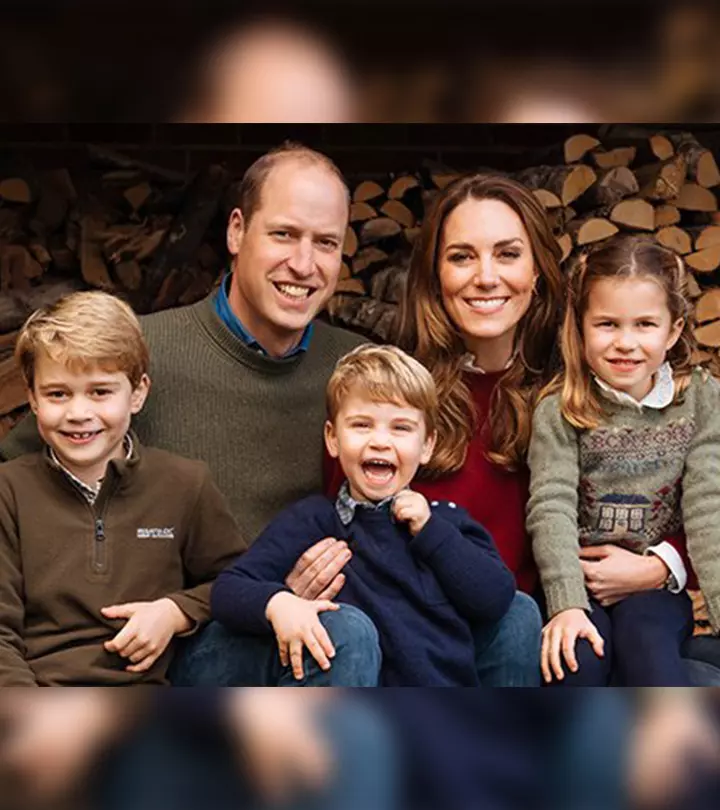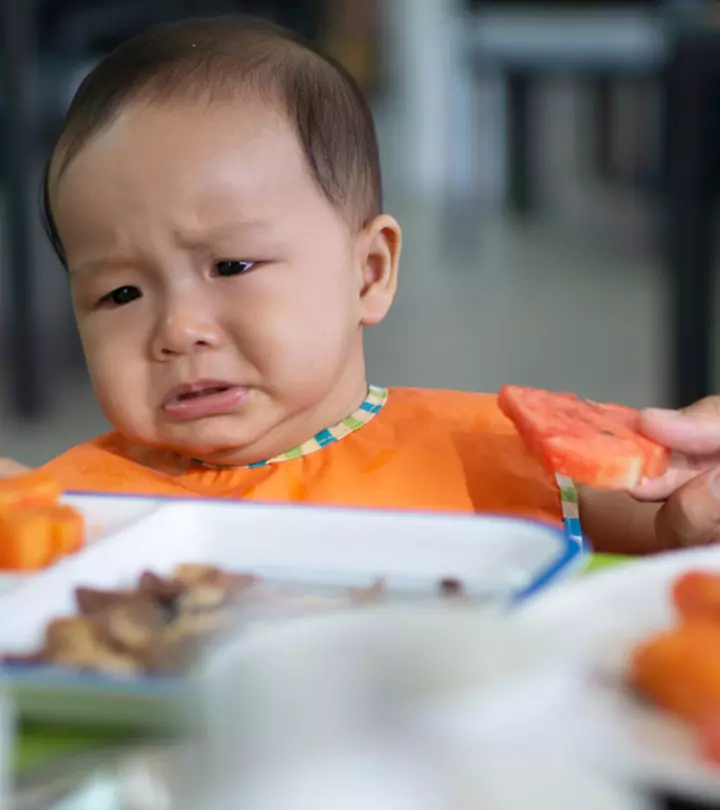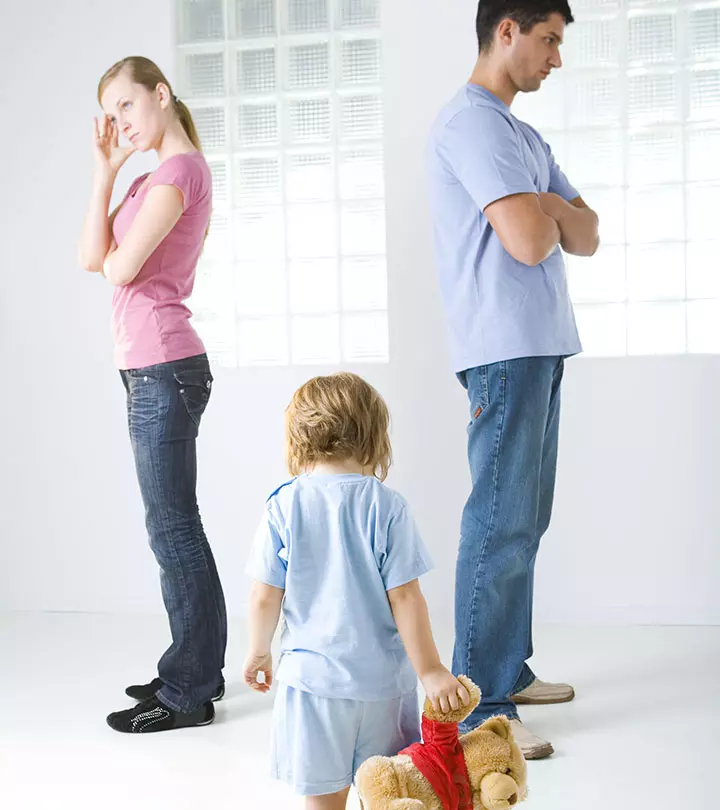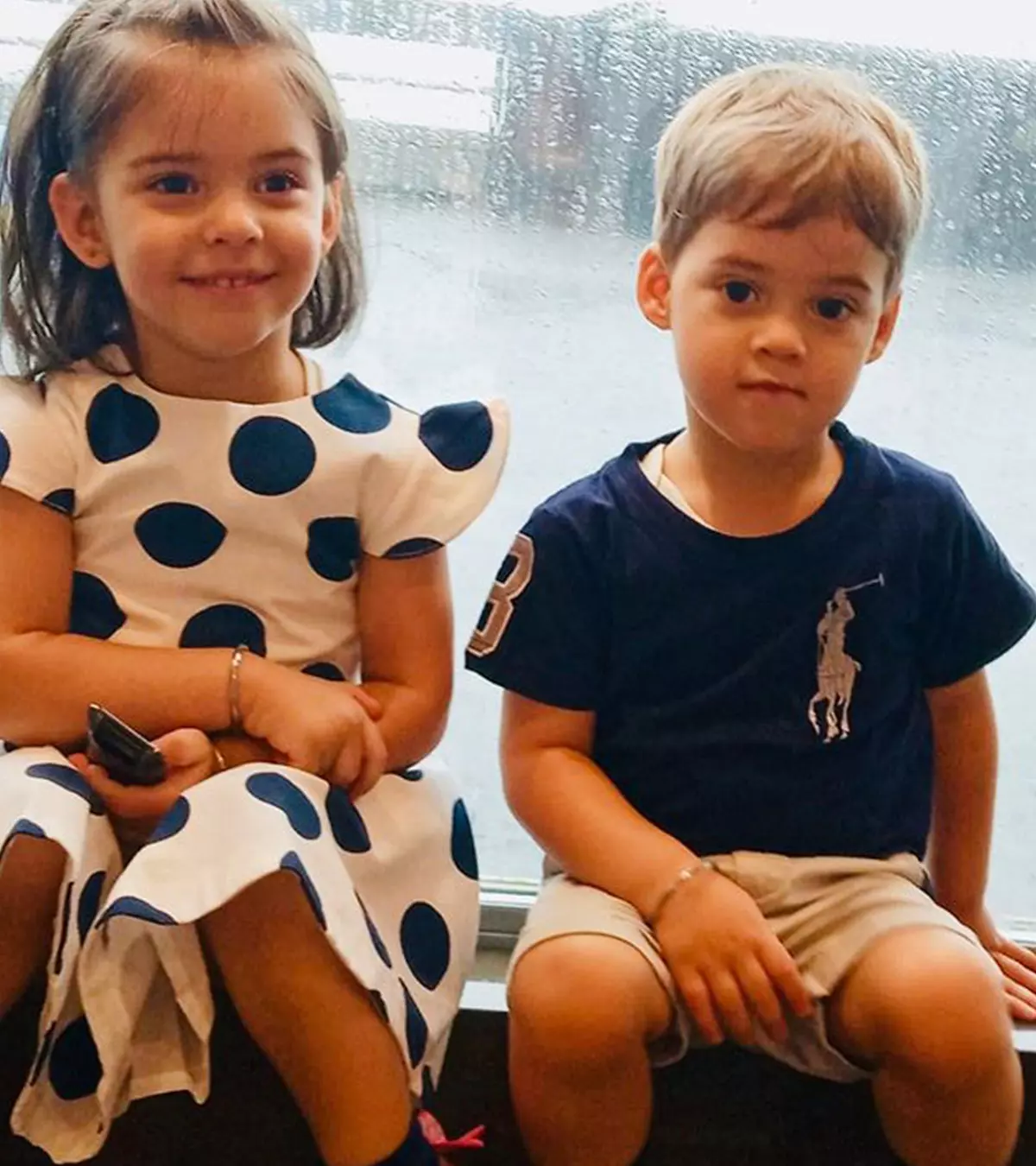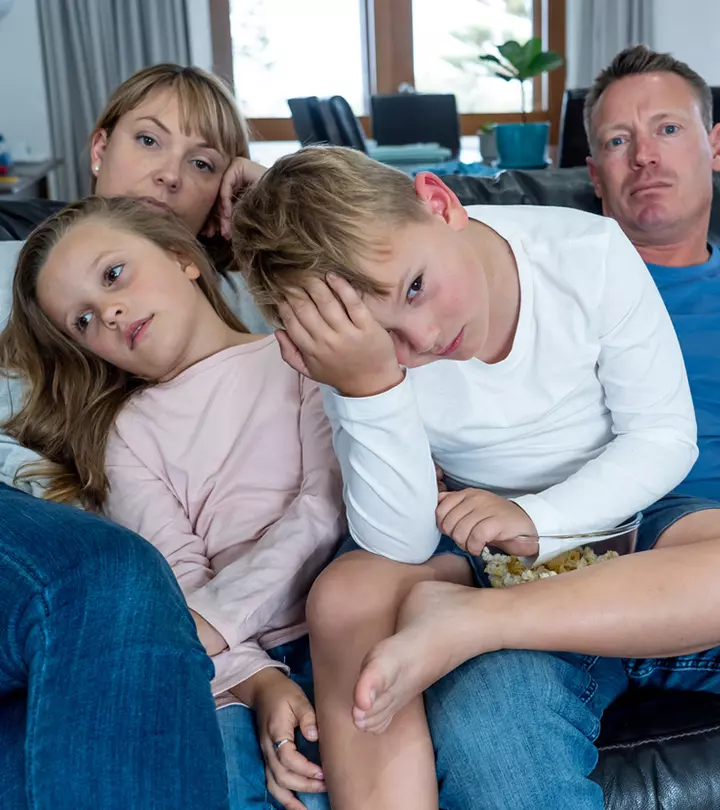

Image: iStock
In any relationship we have to make sure that the people who surround us are good and not toxic. We all need people who uplift us and bring out the best in us, especially if we have to maintain a long lasting relationship with them like that of a child and a parent. But things are not always so black and white when it comes to family and it can be hard to acknowledge that yours has some serious problems that need to be addressed. Salvador Minuchin, a family therapist, emphasizes that a healthy family can effectively address problems, often hinting at the family’s ability to establish and maintain appropriate boundaries (1). When these boundaries become either too distant or too enmeshed between parents and children, it can lead to various issues within the family. Here, we’ll explore some family dynamics that can be detrimental to both parents and children and ways to avoid falling into these traps.
1. Parents Are In Charge But Do Not Work As A Team
Having different parenting styles is perfectly acceptable as long as parents can still find common ground in handling their children and work together as a team. Unfortunately, in many cases, one parent leans towards being overly strict while the other is excessively lenient, leading to a lack of alignment in parenting decisions. This discord between parents can create tension and confusion for children, causing them to act out to test the boundaries or, in some cases, withdraw from their parents. In such situations, children may exploit the dissonance between their parents and seek out loopholes in the parenting system. For instance, they might request permission for something solely from the lenient parent instead of involving both parents in the decision.
2. One Parent Is Absent And The Other Parent Relies On The Child
Image: IStock
It’s crucial for parents to maintain a healthy relationship with each other to be effective parents for their children. When one parent significantly reduces communication and leaves the other to shoulder the responsibilities alone, it can disrupt the parent-child dynamic. While there’s nothing wrong with one parent primarily managing household affairs while the other provides financial support, it’s essential to remember that you are partners with each other, not your child. When one parent becomes neglectful and fails to engage with the other, they may begin relying on the child, sharing their frustrations and secrets. This could include grievances against the other parent, further straining the relationship between the child and the absent parent.
3. The Child Is In Control While The Parents Are Victims
Image: IStock
If you’ve ever seen a spoiled child yell at their parents and wondered how they lived and got exactly what they wanted to boot, well this might be their family dynamic. The family hierarchy exists for a reason. As a parent your job is to protect and provide for your child. But it is also to discipline them and be their role model. They are supposed to follow your lead, not the other way around. This hierarchy gets all messed up when the kids are given power to manipulate either parents. Sometimes this can occur when a parent is going through something drastic, like an illness or an addiction. But mostly, it happens because parents don’t have their lives together and haven’t made an effort to establish order and stability. The child sees that they have no control over their lives and them my extension. So the child in charge acts up and feels entitled to do whatever they want.
4. One Parent Is In Charge While The Other Is A Victim
Image: IStock
This scenario unfolds when one parent assumes total control over the family, behaving more like a dictator than a family member, while the other parent is relegated to the role of another victim. As a result, the children begin to view the less powerful parent as their peer. Typically, the dominant parent exhibits abusive behavior, while the submissive parent feels powerless and compliant. This leads to frustration and loneliness for one parent, and the other parent experiences hurt and abuse. The children become entangled in the middle of this dysfunctional dynamic. In some cases, the helpless parent may even indirectly encourage the children to turn against the dominant parent.
Learning to be a healthy family takes work, just like every other relationship dynamic. Except this relationship is the most important and impactful one you and your kids will ever have. So make sure to avoid these pitfalls and work on being an open and healthy family. Happy parenting!
Avoid Toxic Family Dynamics: 4 Harmful Parenting Styles
Watch now to learn four toxic family dynamics that strain parents and children, plus practical tips to build healthy boundaries and unity in your home.
Community Experiences
Join the conversation and become a part of our nurturing community! Share your stories, experiences, and insights to connect with fellow parents.





